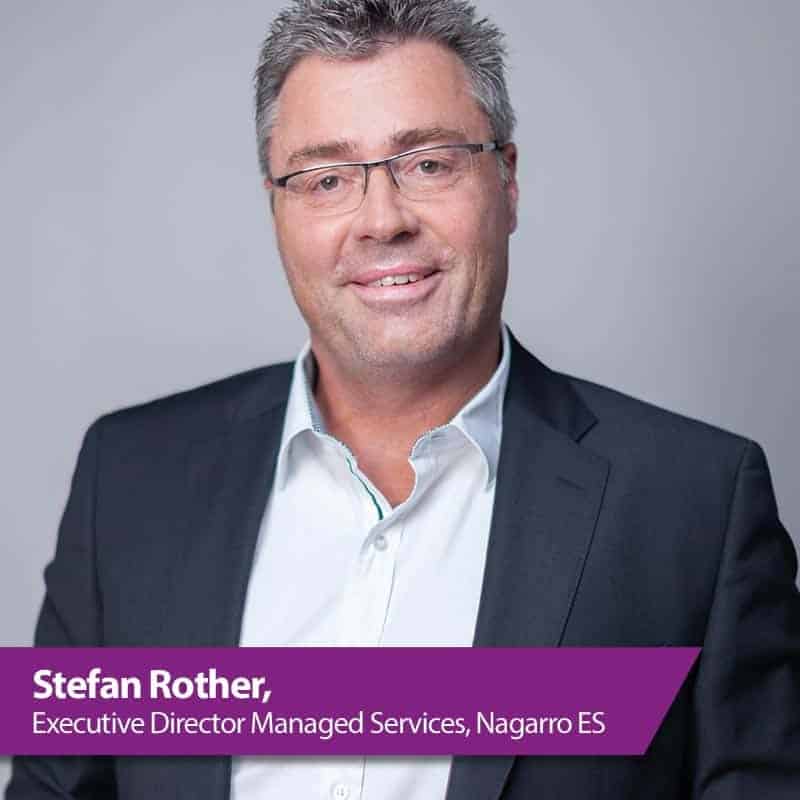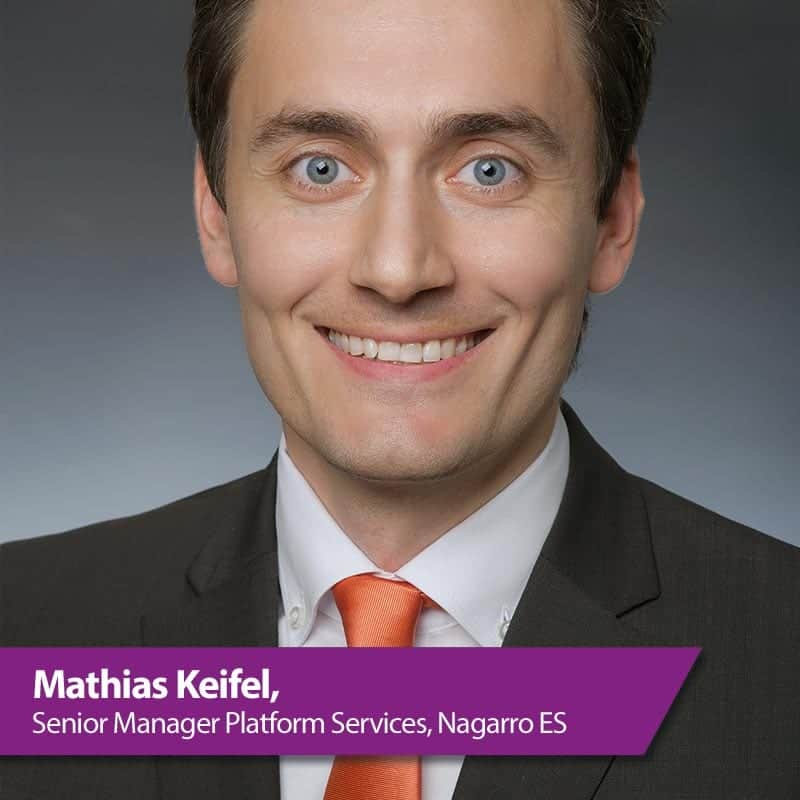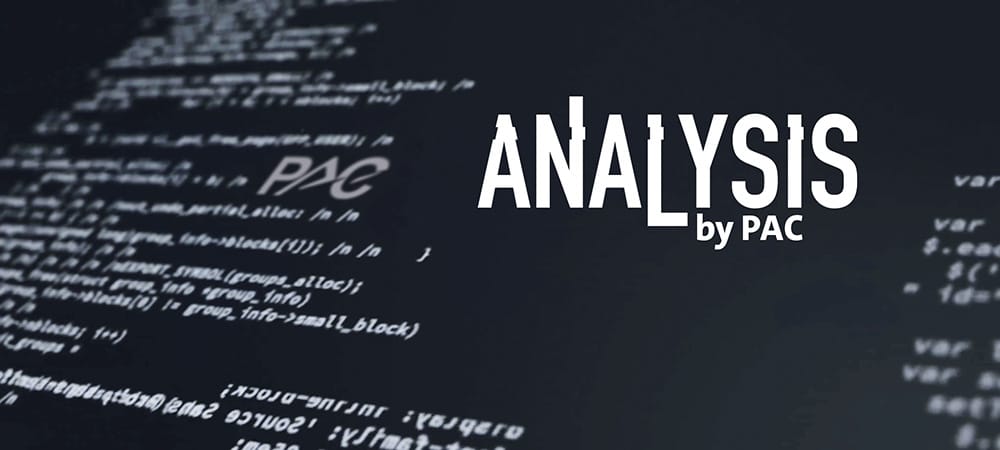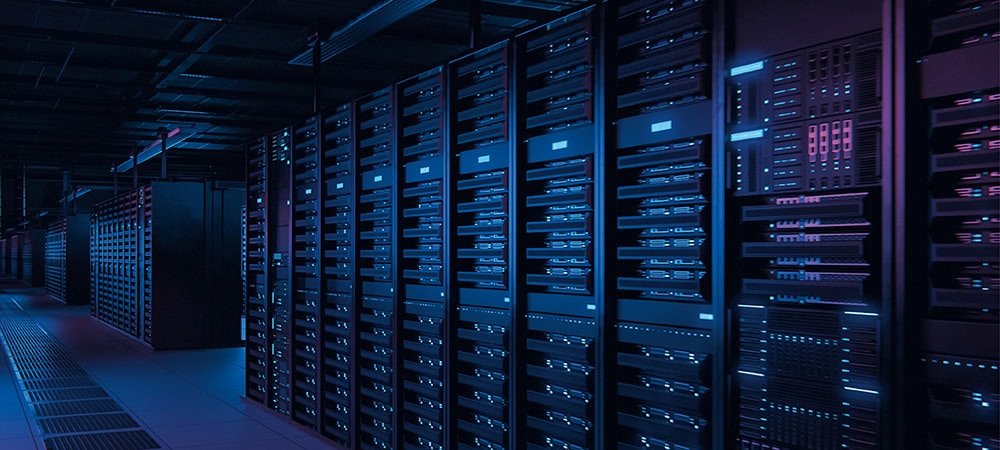Cloud Delta
![[shutterstock.com: 1700110645, GrandeDuc]](https://e3mag.com/wp-content/uploads/2020/10/shutterstock_1700110645.jpg)

According to the latest figures, 38% were already using the public cloud and 30% were planning to do so. However, if you look deeper, the cloud is also all about physical servers on which systems are operated. But what is the difference between the often-mentioned public clouds and private clouds? And what is the connection between hyperscalers?
At Nagarro ES, the differentiation is primarily seen in the question of responsibility and scalability.
Public cloud: IT infrastructures are accessible via the internet and eliminate the need to invest in hardware. Services are provided via infrastructure as a service and billed as a subscription. The services are available to several users/companies via a multi-tenant structure.

Private cloud: If companies want to have their systems in an exclusive environment, they can either host the systems themselves (on-premises) or outsource them to a partner (hosting). In contrast to the public cloud variant, a private cloud gives the provider a high degree of control, but does not always offer the flexibility that public cloud providers do.
Hyperscaler: If public cloud services are obtained from cloud computing providers, this is referred to as hyperscaling. The advantage is high flexibility and scalability. In the SAP context, Microsoft Azure, Amazon Web Services, the Google Cloud Platform and Alibaba are certified for S/4 Hana. In addition, the public cloud providers offer serverless applications that can be used via a subscription model.
The fact that SAP has now also committed to a cloud strategy is probably due to the fact that the initially assumed disadvantages of a public cloud, which related in particular to security aspects, have not been confirmed. The advantages in terms of scalability have become very clear. S/4 is now available in all possible deployment variants, which differ in terms of both licensing and functional scope.
As far as hyperscalers are concerned, experience shows that there is a great deal of enthusiasm for experimenting with public cloud platforms, but the expectations of cost savings, especially through targeted activation and deactivation or provision only as required, do not pay off in reality with productive environments and especially with SAP.

In the Hana area in particular, it is clear that full scalability is not always a given with Hana memory. The frequent lack of granularity, but also the flexibility with expansion, inevitably leads to higher and fixed costs compared to private cloud providers, as the instance sizes of hyperscalers are predefined and can only be selected within these specifications. In comparison, Nagarro ES, for example, offers customers full flexibility in terms of instance sizes.
The added value of hyperscalers for customers arises when everything is provided and managed from a single source. There are also major advantages when the serverless services provided by the public cloud providers are combined with the SAP systems, which tend to be operated on a dedicated basis. The hybrid environment must appear like a closed system landscape to the end customer. This applies both technically and organizationally, including complete security and compliance.
The answer to today's installation scenarios for larger system landscapes can currently only be a hybrid scenario that represents the best technical and economic benefit for the customer. SAP systems and S/4 Hana in particular are still in very good hands in a private cloud environment and can be optimally supplemented by public cloud installations for sandboxes, project systems that are only to be used temporarily and other requirements.
In the area of the many applications outside of SAP, the doors for public cloud installations are much wider open and on-premises is often only recommended in individual cases due to technical or regulatory conditions. How do you decide?








